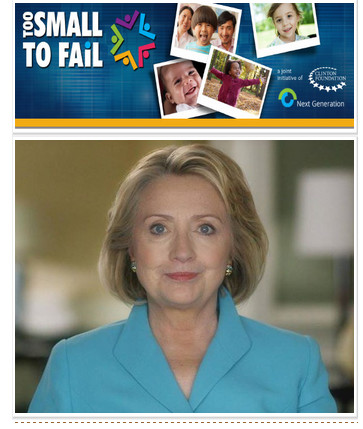Sometimes I take issue with some of what is in these newsletters.
This one begins a little too facilely. Much brain and sense development
precedes birth. It does not all start when the baby is born. That
Too Small to Fail
is concerned with ages 0 -5 may explain the lower parameter, but it is
important to remember that listening comprehension really begins before
birth.

From the moment humans are born, we are absorbing information about the world around us and storing it away for later use.
The
human brain develops quickly from birth, forming nearly 700 neural
connections per second. For example, in the amount of time it took you
to read the previous sentence, a newborn would have formed about 4,400
new connections! At this rapid rate of growth, the average child
develops approximately 80 percent of his brain by his fourth birthday.
Brain
development is fast, and sensitive to its environment. Everything a
child hears, sees, touches and tastes is cross-referenced and stored
away—the early building blocks for learning. But for this reason,
negative experiences can also be especially harmful to very young
children. The “toxic stress” of poverty, a parent’s job loss or abuse
can actually prevent neural connections in their brains, and impact
later learning and even health.
Under
normal circumstances, parents and caregivers who spend time talking,
reading, singing and playing games with their babies help increase their
vocabularies and improve brain growth. During times of severe stress,
you can:
- Reassure your child. Make sure they feel loved, even if you can’t control the circumstances around them.
- Take a breath. If you reduce your stress levels, you can better help them manage theirs.
- Bond with your child. Take time to cuddle, ask questions and laugh—especially when times are tough.
- Establish
routines. Young children need predictable structure in their lives so
that they feel secure enough to manage high stress levels.
Read More:
In The News:
Interactive
Check
out this baby brain map from ZERO TO THREE, which you can use to track
how babies’ and toddlers’ brains develop during different periods of
growth.
>>


